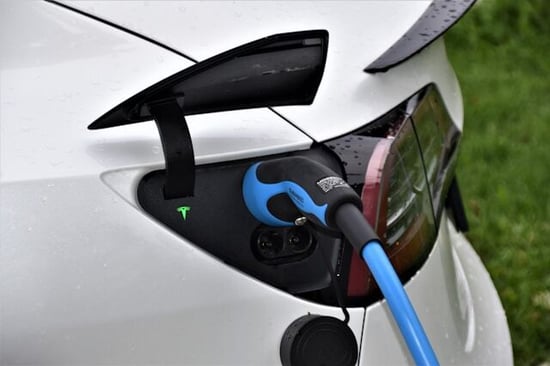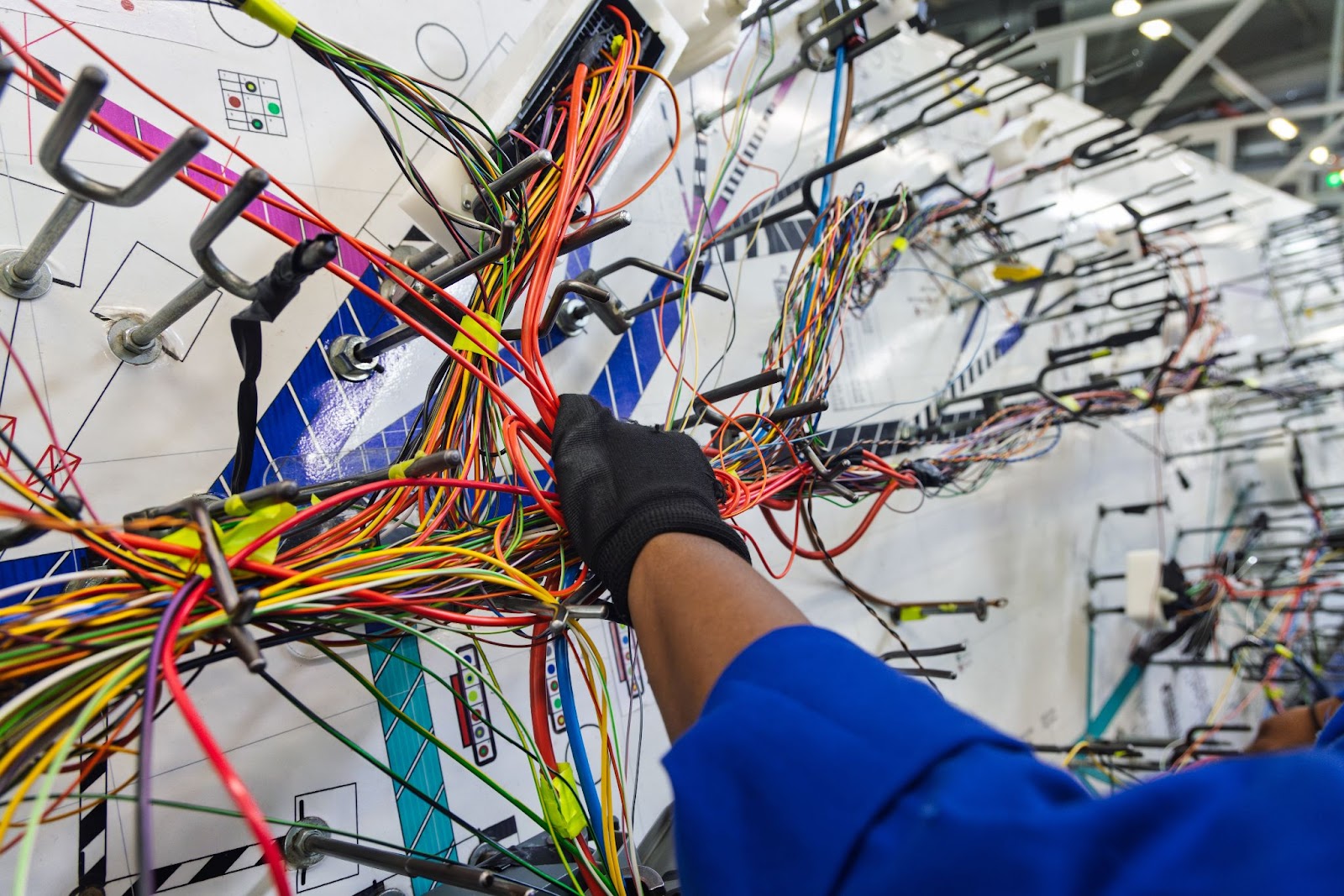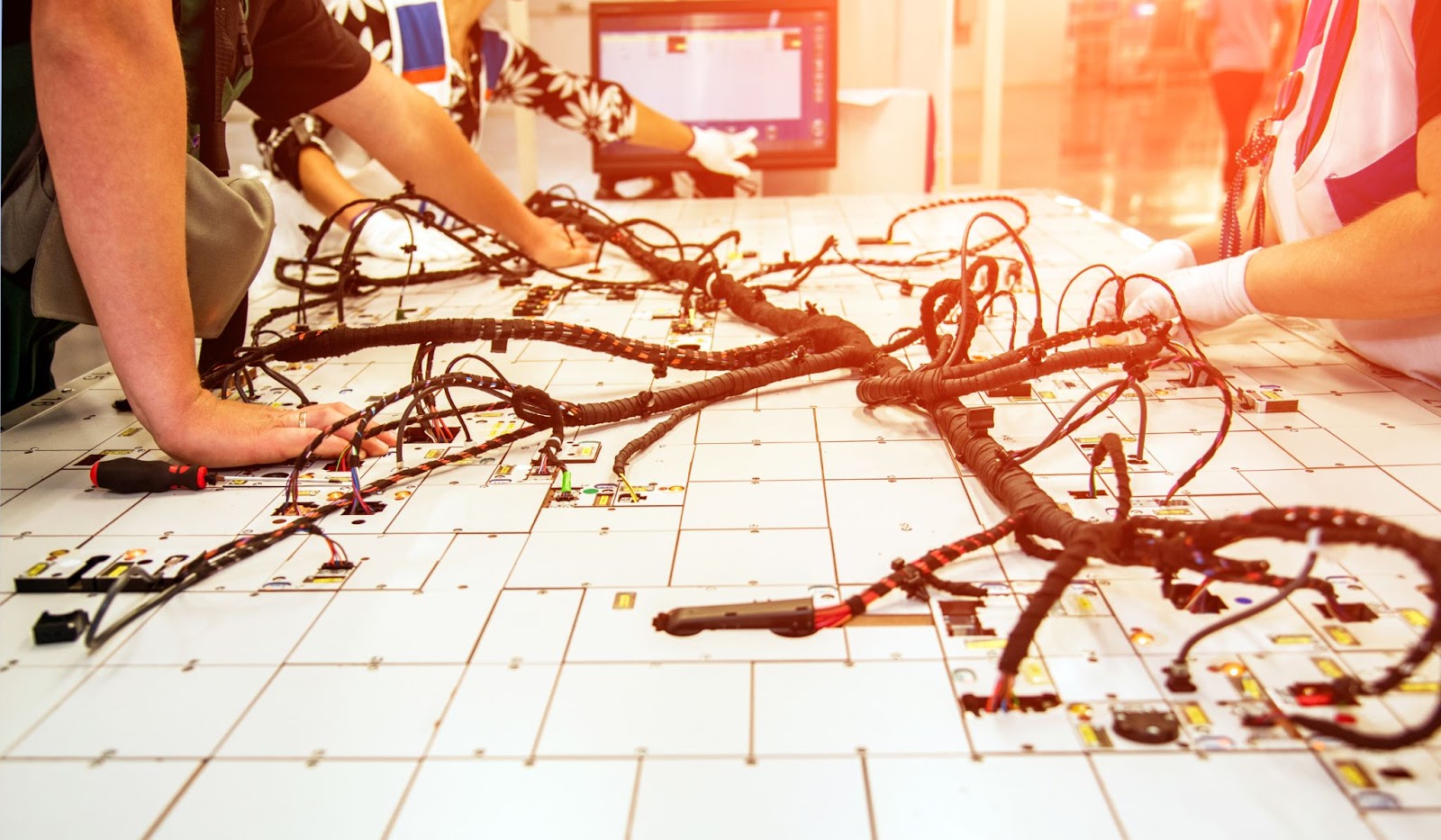
Electrification is the in thing today, especially as the world tries to combat the effects of climate change. One particular area that is receiving a lot of attention in terms of electrification is the automotive industry. Electrification is coupled with tons of wiring, so this industry is expected to use more wiring harnesses in the coming decades.
Projections show the global automotive cable harness market will reach a valuation of $75.6 billion in 2033, up from $50.6 billion in 2023, owing to this increase in demand.
The automotive wiring harness market refers to the comprehensive industry that designs, manufactures, assembles, and distributes wires, wire bundles, and other cable harness components to vehicle manufacturers to run different types of cars (passenger, commercial, electric, ICE, trucks, etc.).
What’s Driving This Increase in Automotive Wiring Harness Demand?
Electrification is the primary driver, which is coupled with the increase in demand/adoption of electric vehicles. However, there are other factors at play here.
For instance, the rising customer demand for ADAS (Advanced Driver Assistance Systems), such as adaptive cruise control, lane departure warning, and self-parking, contributes to the increase in wiring harnesses used in each vehicle to connect the sensors and relevant control units.
Autonomous systems in a futuristic car

There’s also the proliferation of smart connectivity features collectively under V2X, which make the vehicle integrate and synchronize seamlessly with nearby devices to enhance the driving experience.
On top of that, there are stringent safety regulations provided by regulators, including emission regulations for ICE cars. To meet these standards, car manufacturers must incorporate additional electrical systems, which require electrical wiring.
Key Players in the Automotive Wiring Harness Industry
Yazaki
Yazaki is a global leader in manufacturing various vehicle wiring harnesses, including those used in ADAS and EVs. The company also specializes in manufacturing instruments and wire harness components, such as terminals and connectors.

Furukawa Electric Co. Ltd
Like Yazaki, Furukawa is a Japanese conglomerate with a global reach. However, Furukawa has a richer history because it started as a copper mining and smelting factory in 1884. Currently, the company has a diverse product range in the automotive category alone, which includes wire harnesses, connectors, and functional products, such as heat-resistant wires, metal-core PCBs, and batteries.
Sumitomo
Since Japan is the home to some of the most notable legacy car manufacturers, naturally the suppliers to these companies had to be local to eliminate supply chain logistical issues. This is why Sumitomo, a Japanese cable assembly manufacturer, makes it to this list. The company specializes in manufacturing innovative wiring harness solutions with a strong focus on sustainability.
China has emerged as the new car manufacturing powerhouse, specifically for futuristic EVs. To ensure a reliable supply chain, there has been an increase in local cable assembly manufacturers like Cloom Tech, which have specialized in making harnesses for several industries, including automotive.

Since its inception, Cloom Tech has focused on three aspects when manufacturing wiring harnesses: customization, innovation, and low production costs. With these, the company has grown to serve global clients like Geely, Honda, and General Electric, meaning its reputation is solid.
Cloom Tech has a sub-brand known as Wiringo that handles the development of customized cable assembly solutions.
Conclusion
As the automotive wire assembly industry grows, it is important to check the countries or regions where these harnesses are manufactured for reputation purposes.
Germany, Japan, the US, and Europe were at the forefront with their legacy car manufacturing industries, but China has become the new wire harness manufacturing powerhouse to watch. Companies like Cloom Tech are actively involved in the EV revolution pioneered by Chinese car companies.